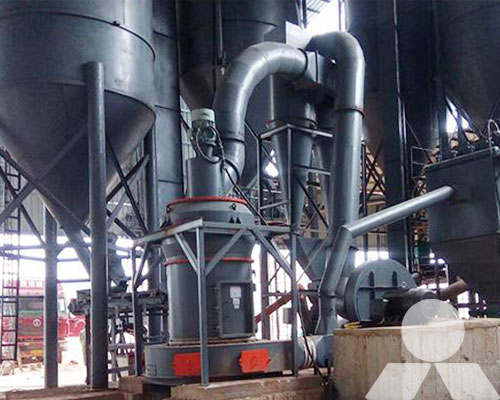Petroleum Coke Crushing and Grinding Process
Petroleum coke is an important carbon material, widely used in metallurgy, chemical, construction, electricity and other fields. In the production process of petroleum coke, crushing and grinding are essential steps, which have a significant impact on the quality and yield of petroleum coke.

I. Crushing process of petroleum coke
In the production process of petroleum coke, crushing is necessary to reduce the particle size for subsequent grinding and use. The crushing process of petroleum coke usually includes the following steps:
- Primary crushing: The original petroleum coke block material is crushed into smaller block materials by jaw crushers or other equipment.
- Intermediate crushing: The crushed petroleum coke materials are further crushed into smaller particles by cone crushers or impact crushers.
- Fine crushing: The petroleum coke materials after intermediate crushing usually need to be further crushed by ball mills, fine crushers and other equipment to obtain smaller particles.
- Screening: During the crushing process, the materials need to be screened to separate petroleum coke of different particle sizes for subsequent grinding.
II. Grinding process of petroleum coke
The grinding process of petroleum coke refers to the process of refining the crushed petroleum coke particles, mainly to improve the quality and yield of petroleum coke.
The grinding process of petroleum coke usually includes the following steps:
- Coarse grinding: The crushed petroleum coke materials are further ground into finer particles by ball mills and other equipment. The grinding media used in this process are usually steel balls or other hard grinding media.
- Intermediate grinding: After coarse grinding, the petroleum coke materials enter the intermediate grinding stage, where they are further ground by ball mills and other equipment to make the particles even finer and improve the quality and yield of petroleum coke.
- Fine grinding: After intermediate grinding, the petroleum coke materials need to be further ground by mtw european trapezium grinding mill and other equipment to obtain even finer particles.
- Classification: During the grinding process, petroleum coke needs to be classified to separate particles of different sizes for subsequent use.
III. Effects of crushing and grinding on the quality and yield of petroleum coke
Crushing and grinding are essential steps in the production of petroleum coke, which have a significant impact on the quality and yield of petroleum coke. The efficiency and accuracy of crushing and grinding directly affect the particle size and distribution of petroleum coke, which in turn affects the physical and chemical properties of petroleum coke, such as density, porosity, electrical resistivity, and reactivity. At the same time, the parameters and equipment selection of crushing and grinding also directly affect the yield and cost of petroleum coke production. Therefore, in the production process of petroleum coke, it is necessary to carefully design the crushing and grinding process according to the actual situation, to improve the quality and yield of petroleum coke, reduce production costs, and enhance market competitiveness.
In conclusion, the crushing and grinding process of petroleum coke is an important step in the production of petroleum coke, which has a significant impact on the quality and yield of petroleum coke. Through reasonable process design and equipment selection, efficient, low-cost, high-quality, and sustainable production of petroleum coke can be achieved.









